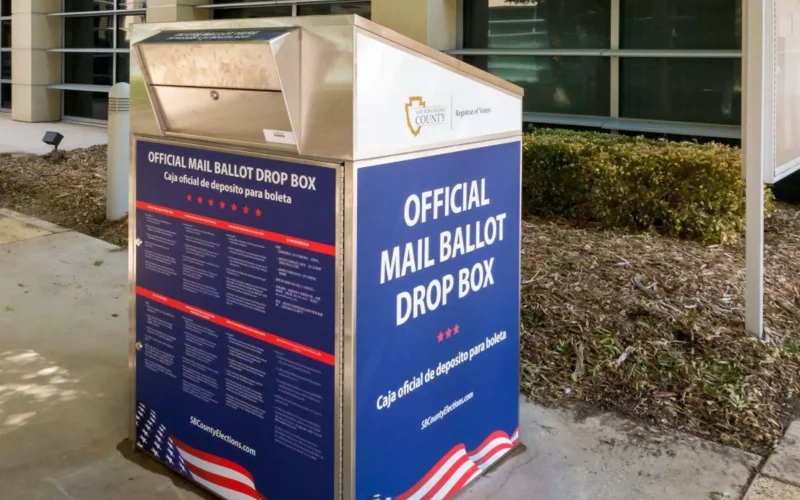In a move that has rekindled a national debate on voter rights and election integrity, lawmakers in the Capitol Hill are gearing up for a critical round of debates over forthcoming election bills in the next few weeks. Central to the discussion will be the proposed restrictions on ballot drop boxes, a prominent element of Republican proposals nationwide.
The outcome of these discussions could potentially redefine the contours of the 2024 presidential election, creating new fault lines between proponents of expanded voter access and advocates of stringent election integrity measures.
In the coming weeks, Capitol Hill legislators are set to discuss forthcoming bills pertaining to voting and elections, potentially shaping the 2024 presidential election.
The GOP, on Monday, is poised to present the “American Confidence in Elections Act”, a piece of legislation referred to by Rep. Bryan Steil (R-WI) and House Administration Committee Chair, as the most conservative election-related bill seen in the House in over two decades.
The Republican bill encourages states to verify voter lists, carry out post-election audits, and prevent election officials from distributing absentee ballots without a request. It also proposes to implement checks on voter eligibility and terminate a Washington, D.C. policy that allows non-citizens to vote in local elections.
The GOP bill aligns with many Republican-led state legislatures that have introduced ID requirements for mail-in voting, reduced or eliminated ballot drop boxes, and constrained the ability of third parties to return ballots.
For instance, Georgia, which was a pivotal state in both the 2020 presidential and gubernatorial races, adopted a comprehensive voting law in 2021 that set a precedent for nationwide reform.
Democrats vehemently denounced this legislation, suggesting it could lead to voter suppression. Republicans countered these allegations, citing the robust voter turnout in the 2022 midterms as evidence to the contrary.
“The Georgia General Assembly has worked to create a system that makes it easier to vote, have results that can be audited and verified, give voters options for their preferred method of voting and build confidence using voter ID,” said former Georgia State Rep. Scot Turner, a Republican, during a House Administration Committee hearing in May.
On the other hand, Democrats argue that the GOP is undermining the voting process and insist on federal intervention to guarantee free and fair elections. They aim to put forth measures to increase voter access, like the use of drop boxes, and to block states from imposing voting restrictions.
Democrats plan to present measures that would allow the federal government to dictate how states handle elections, thus establishing a nationwide standard for voting. Conversely, House Republicans are anticipated to propose a bill aimed at tightening voting regulations and affirming the states’ primary role in overseeing elections.
Despite these efforts, Democrats have previously failed to secure sufficient Senate votes to bypass procedural hurdles and pass their proposals.
“America is under threat from election deniers and extremist anti-voting forces who undermine our democracy,” said Rep. Joe Morelle (D-NY), the ranking Democrat on the House Administration Committee. “In contrast, our agenda offers national standards that ensure every eligible American can participate in accessible, secure and transparent elections.”
While the distinct and opposing proposals of the Democratic and Republican parties may rally their respective bases ahead of the elections, it’s unlikely either will make significant headway in the split government.
However, individual states are not idly standing by. Since 2021, Georgia, Iowa, Florida, and Texas have passed laws necessitating voter IDs, limiting drop boxes, or introducing other protective measures.
In contrast, states like California, New York, Oregon, Virginia, and Washington have moved in the direction of relaxed election integrity. Arizona, Missouri, New Hampshire, South Carolina, and Tennessee have also made attempts or succeeded in implementing new voting and election laws during the same period.

